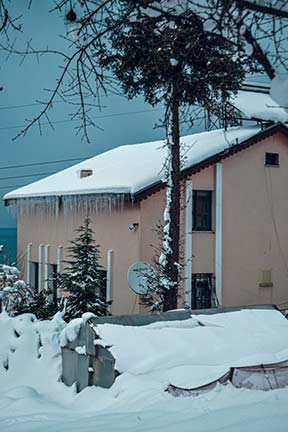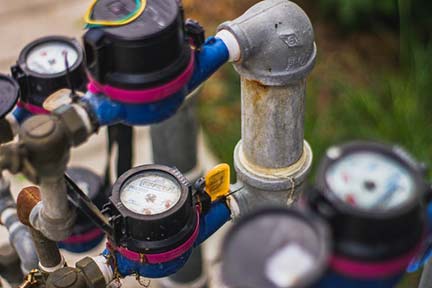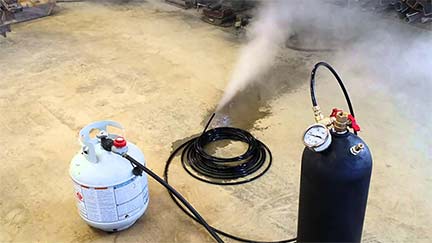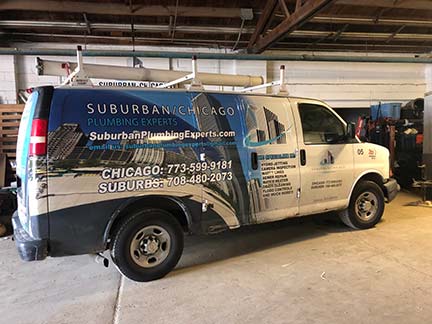
Frozen pipes are some common and unwanted problems landlords often have to deal with. It is not unusual to be called in the middle of winter and informed by your tenant that the water supply in the rental property has been cut off due to a frozen pipe.
This can happen for a few reasons like pipes freezing because there is a rapid drop in outside temperature. But this alone will not cause the pipes to freeze unless the building’s insulation is damaged or inadequate and the inside temperature is set too low.
Usually, pipes freeze because your tenants failed to take the right actions to prevent them. For instance, a tenant who is going away temporarily may turn off the heat inside their apartment. Tenants may also fail to leave faucets dripping to keep water flowing through the pipes.
Most of the time, the frozen pipes are located on the outside of the building or inside the exterior-facing walls of the house. They may also be pipes that are close to openings in the walls of the buildings such as entry points for some of the home’s systems.
Regardless of what causes a pipe to freeze, it is your responsibility, as the landlord, to fix the problem, explains Nelson Management. Frozen pipes interfere with the rental’s water supply and will make the home uninhabitable. Solve the problem first and then decide later who will be financially responsible for it.
When pipes freeze, the termination of an apartment’s water supply is not the only problem you have to deal with. If you remember your high school science, you know that water freezes when it expands. This means a frozen pipe is liable to burst. It may also leak after it is thawed.
There are two ways to handle frozen pipes: thaw the pipe or replace it. If action is taken soon after the pipe starts to freeze, it is usually possible to prevent damage to the pipe. But if action is delayed, leaks may result and replacing the pipe will become inevitable.
These are the steps to follow when dealing with a frozen pipe:
- Turn off the water supply

This is the first thing you should tell tenants as soon as they inform you of the problem. Shutting the water supply will keep the frozen area from expanding, thereby reducing the risk of damage to your pipes and keeping the cost of fixing the problem under control.
- Thaw the pipes

On no account should you use an open flame such as a blow torch on the pipe. Although this will certainly thaw out the pipe, it will also damage it. There are also some commonly recommended DIY solutions that are inappropriate because of the associated dangers.
These include:
- Using a hairdryer: You may have heard that you should turn your hairdryer on full blast and direct the heat to the frozen section of the pipe.
- Using a space heater: This works similarly to the hairdryer. You move the space heater close to the pipe, turn it on, and wait for the heat to thaw the pipe.
- Using heating cables: Heating cables are wrapped around the frozen pipe and the heat from them will thaw out the pipes.
The problem with these solutions is the danger of electrocution. As stated, pipes expand when the water in them freezes. This may result in leaks, but the leaks are not apparent until the pipe is thawed. The released water can get into electrical equipment. There is also a risk of fire when using a space heater.
CALL AN EXPERT

To defrost a frozen pipe without putting you and your tenants at risk, call a professional plumbing technician. A professional plumber uses time-controlled pipe thawing equipment that will not damage your pipes by overheating them.
An expert will apply a comprehensive solution that will:
- Include the right action to prevent, reduce, and repair pipe leaks. Usually, when you use a DIY approach, you don’t expect leaks and are not prepared for them. The result is additional damage and lost time since you still have to call an expert to fix the leak.
- Fix frozen pipes inside walls. If the frozen pipe is inside a wall as is often the case, the technician knows how to locate and thaw it out. This is not something you can do with DIY solutions. As a matter of fact, when frozen pipes are inside a wall, you may not even know this is the reason the water supply in the apartment stopped.
- Repair or replace damaged pipes. Depending on the extent of the freeze and how long it lasted, the pipe section or entire pipe length may need to be removed. An expert is prepared for this possibility and will do everything to make sure the water supply is restored quickly.
Comments
Post a Comment